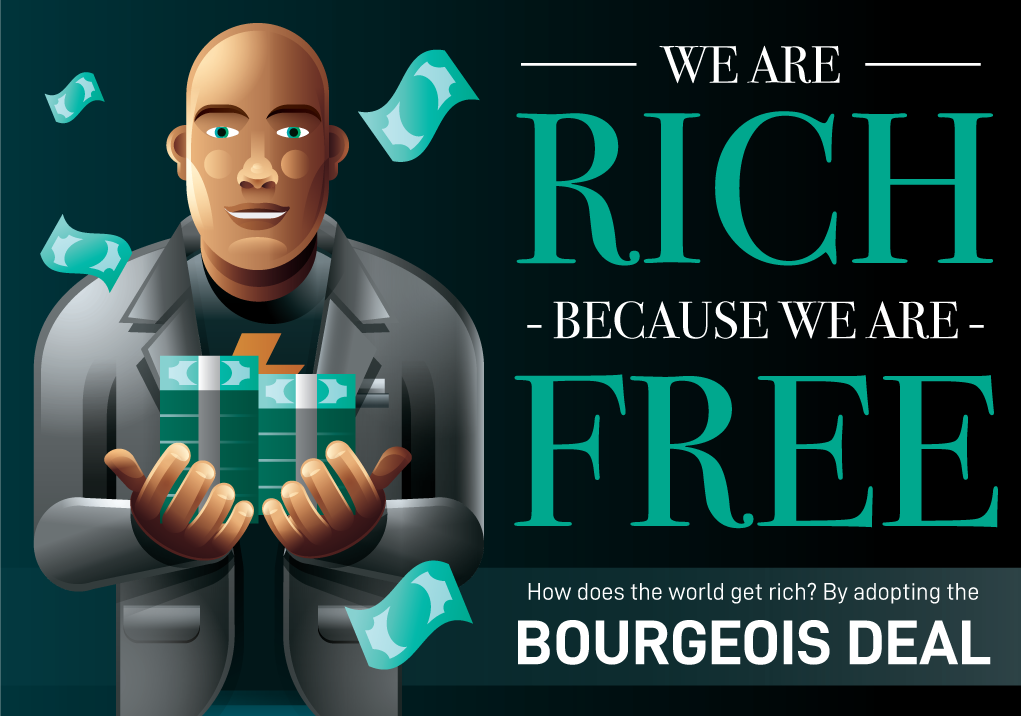Entrepreneurship today is an occupation distinct from all others. It can be characterized by great individualism, increased risk, and the lure of great reward. Successful entrepreneurs explicitly seek to increase their own prosperity, yet they often improve social welfare along the way. Their development is a topic widely discussed on the individual level by business literature. On the societal level, entrepreneurship and innovation traces back to the early modern era when Western society rejected their previous aristocratic deal (“do what I say and I’ll let you work”) in favor of the bourgeois deal (“leave me alone and I’ll make you rich”).
When Western values shifted to accommodate this new deal, traditional bourgeois folk (shopkeepers, merchants, and innovators) went from being suspect to international drivers of progress. Working in one’s own interest changed from being a sign of inferior character to a standard expectation for anyone trying to make it commercially. As a result, global poverty standards have fallen a great deal over the past two centuries. 85% of the globe in 1800 lived on less than $2 a day, but only 9% did in 2017. In America specifically, items considered luxuries a century ago (like automobiles and air conditioning) are easily accessible to the average household.
Liberty and dignity for entrepreneurs make societies rich. Higher income levels and reduction in poverty occur when people are encouraged to innovate, and entrepreneurs can only see the success they desire in an environment that lets them retain the profits of their blood, sweat, and tears. That’s why certain restrictions on the free market can stifle their progress.
Free markets are necessary for prosperity, but they alone are insufficient. Recognizing each individual’s right to self-author requires our free society to extend liberty and dignity to everyone. Prosperity can’t reach everyone unless everyone, including women and minorities, is empowered to innovate should they choose. The ideal world is one where anyone can be a merchant. Women and minorities are able to embrace the entrepreneurial maxim, “we are rich because we are free,” every bit as much as their white male peers.
See more on how to become an entrepreneur below:


